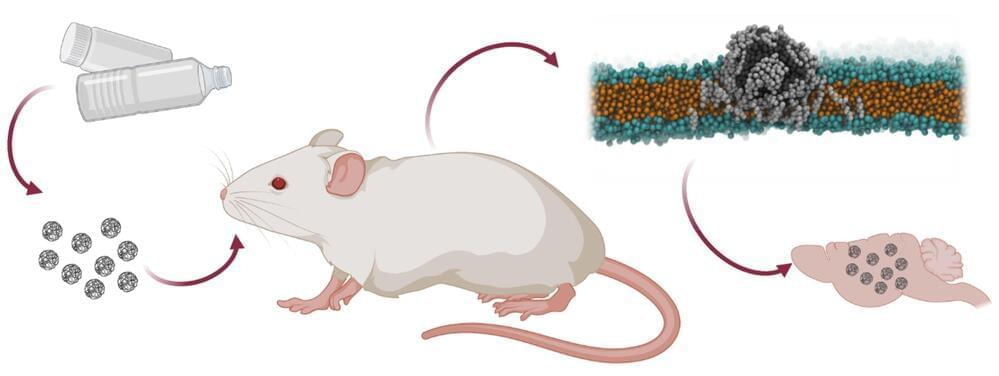Among the biggest environmental problems of our time, micro-and nanoplastic particles (MNPs) can enter the body in various ways, including through food. And now for the first time, research conducted at MedUni Vienna has shown how these minute particles manage to breach the blood-brain barrier and as a consequence penetrate the brain. The newly discovered mechanism provides the basis for further research to protect humans and the environment.
Published in the journal Nanomaterials, the study was carried out in an animal model with oral administration of MNPs, in this case polystyrene, a widely-used plastic which is also found in food packaging. Led by Lukas Kenner (Department of Pathology at MedUni Vienna and Department of Laboratory Animal Pathology at Vetmeduni) and Oldamur Hollóczki (Department of Physical Chemistry, University of Debrecen, Hungary) the research team was able to determine that tiny polystyrene particles could be detected in the brain just two hours after ingestion.
The mechanism that enabled them to breach the blood-brain barrier was previously unknown to medical science. “With the help of computer models, we discovered that a certain surface structure (biomolecular corona) was crucial in enabling plastic particles to pass into the brain,” Oldamur Hollóczki explained.
